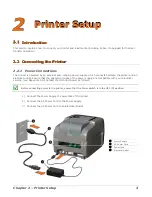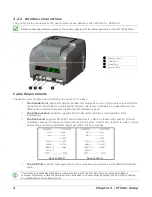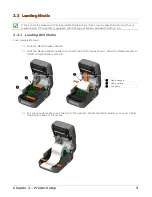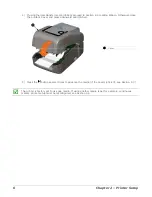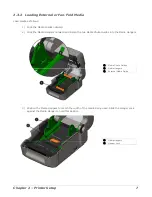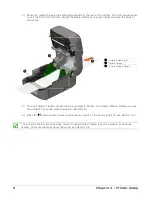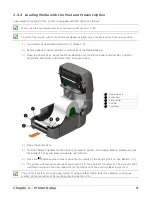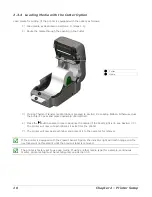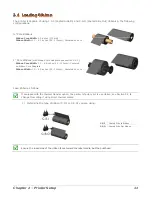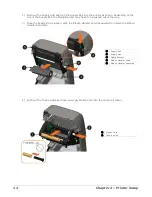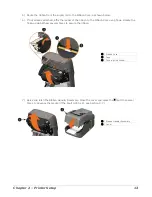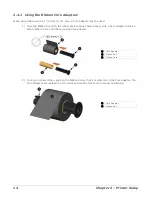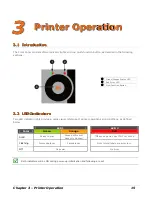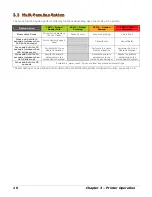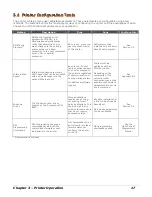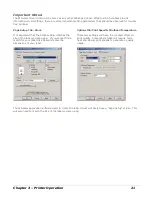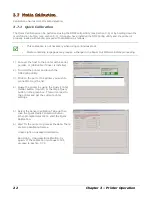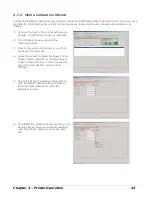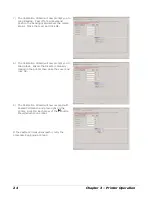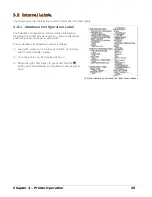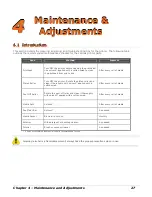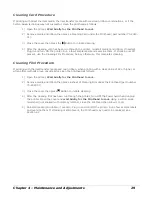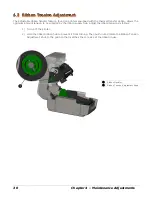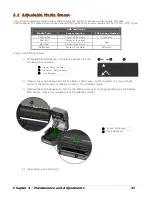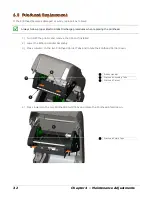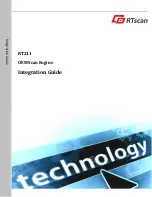
Chapter 3 – Printer Operation
17
3
3
3
.
.
.
4
4
4
P
P
P
r
r
r
i
i
i
n
n
n
t
t
t
e
e
e
r
r
r
C
C
C
o
o
o
n
n
n
f
f
f
i
i
i
g
g
g
u
u
u
r
r
r
a
a
a
t
t
t
i
i
i
o
o
o
n
n
n
T
T
T
o
o
o
o
o
o
l
l
l
s
s
s
The printer contains many user adjustable parameters. These parameters are configurable using a few
methods. The table below lists the most popular ways of configuring the printer and the advantages of each.
Choose the method that best addresses your application.
Method
Description
Pros
Cons
For More Info
DMXConfig
Program*
DMXConfig (located on the
Accessories CD-ROM) is a
Windows based configuration
utility that allows the user to
make changes to the existing
printer setup via a direct
connection to the host computer’s
serial, USB, or parallel
connection.
Easy to use, gives the
user the most control
of the printer.
Software must be
installed on a Windows
based host computer.
See
Section 3.5
Internal Web
Pages*
Internal web pages are simple
HTML pages that can be accessed
with any web browser via the
optional Ethernet port.
Easy to use. Printer
can be configured from
any host connected to
the network regardless
of physical location or
host operating system.
No additional software
required.
Printer must be
equipped with an
Ethernet option.
Depending on the
complexity of the
network, initial
connection may not be
possible until network
parameters are set via
another method.
See
Appendix B.2
Windows
Driver
The Windows printer driver
(located on the Accessories CD-
ROM).
Many applications
require use of driver
for printing from 3
rd
party applications. This
can be an all in one
solution for some users
that do not require
advanced setups.
Requires installation of
a driver on a Windows
based host.
Only basics parameters
can be configured.
See
Section 3.6
DPL
Programming
Commands
DPL Programming Language
commands can be built into
custom label formats or sent
individually to the printer.
DPL commands can be
built directly into label
formats which can
configure the printer
on the fly.
DPL programming
knowledge needed.
See the
Class Series 2
Programmer’s
Manual
* Recommended methods

